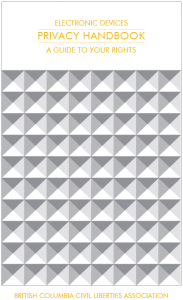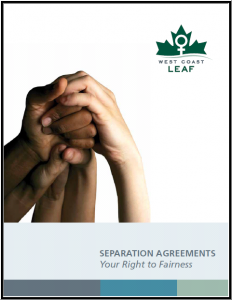Electronic Devices Privacy at the Canadian Border
 The data on your phone, tablet, or laptop is likely something you consider to be private. We use these devices for so many aspects of our lives now – personal and business emails, writing reminders to ourselves, taking photos and videos of our holidays, banking – the list goes on and on. And for people like for lawyers, journalists and doctors, the information on these devices can include confidential information about others. We carry these devices with us all the time, even when we travel.
The data on your phone, tablet, or laptop is likely something you consider to be private. We use these devices for so many aspects of our lives now – personal and business emails, writing reminders to ourselves, taking photos and videos of our holidays, banking – the list goes on and on. And for people like for lawyers, journalists and doctors, the information on these devices can include confidential information about others. We carry these devices with us all the time, even when we travel.
Let’s say you’ve gone on a trip outside Canada. What happens when you cross the border back into Canada? Can the border agent search your smart phone? Do you really want them looking at your holiday photos, seeing your business contacts list, reading your emails? Can they search the files on your laptop? Do they have the right to do that?
The BC Civil Liberties Association has recently added a new resource to Clicklaw. The Electronic Devices Privacy Handbook: A Guide to Your Rights is a handbook for people who are crossing the border into Canada. It covers:
- your rights at the Canadian border,
- the Canadian Border Services Agency (CBSA) policies,
- best practices for keeping your information private and secure, and
- what you can do if you’ve been searched.
And before you leave Canada, consider checking out the rules for the country you’re travelling to, as the rules are different wherever you go. The handbook includes a link from the Electronic Frontier Foundation’s online guide to crossing the U.S. border: Defending Privacy at the U.S. Border: A Guide for Carrying Digital Devices.
 West Coast LEAF
West Coast LEAF
